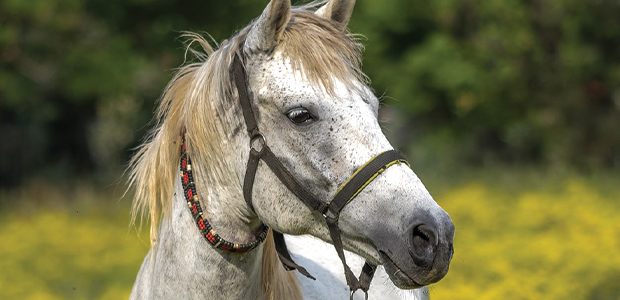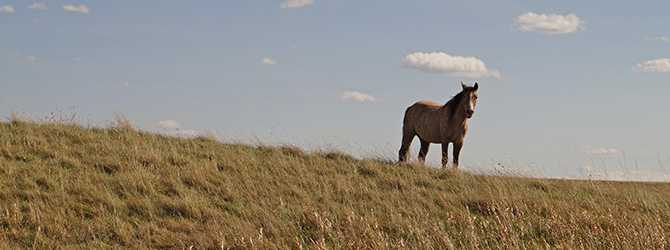Equine influenza: what is equine flu?
First Published: 14/08/2019
Last Updated: 22/05/2023
Equine flu is a highly infectious disease that can spread further in distance than many other diseases. It’s important for your horse to remain protected at all times and to know which symptoms to look out for.
Horse flu: what is equine influenza?
Equine flu affects the horse’s upper respiratory tract. Just like human flu, it’s highly contagious and spreads rapidly from horse to horse; this occurs as an infected animal coughs – the virus enters the atmosphere and quickly spreads to other horses.
Equine influenza is so contagious that affected horses must be kept at least 100m away from their equine companions! The virus can also survive for some time on surfaces or any objects that an affected animal has come into contact with, which is why it’s so important for stables to stay clean.
Clinical signs
Signs of equine flu include:
- High temperature
- Coughing
- Discharge from the nose
- Swollen glands under the lower jaw
- Conjunctivitis
- Loss of appetite
- Depression
These can appear within 1-5 days of the animal becoming affected and last for up to 6 weeks. Many of these symptoms aren’t exclusive to flu, however, so if you suspect your horse has equine influenza, contact your vet - they’ll be able to run a proper diagnosis.
Read more: Equine euthanasia: understanding a difficult process

Treatment and prevention
Contact your vet as soon as you can! They’ll be able to identify the horse’s condition and limit the further spread of infection.
When it comes to equine influenza, as with most veterinary ailments, prevention is better than cure. The importance of vaccinating against equine flu can’t be understated. Horses should be vaccinated with a primary course and receive annual booster vaccinations following this. Racing horses should be vaccinated more often and vaccines should cover recent strains of equine flu present in the UK.
Further effective preventative measures include:
- Isolating horses that are new to the yard
- Regular cleaning/disinfecting of vehicles and stables
- Avoid letting horses use the same feed bowls and stable equipment
- Checking horses’ temperature regularly
Need more info?
For more information on equine flu and how to keep your horses protected, contact your local equine vet today. They’ll be able to advise further based on your specific horse and situation.
Find your nearest vet using our Find a Vet page, or speak to a vet online using Online Vets.
